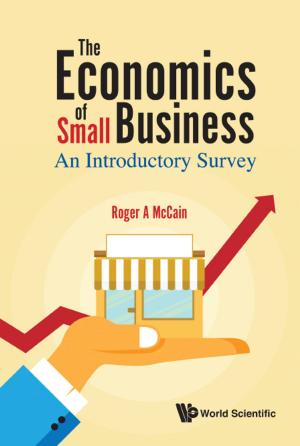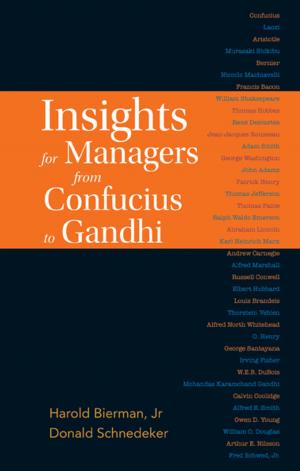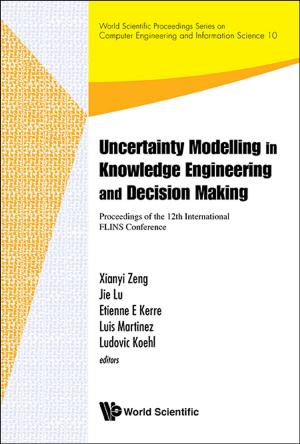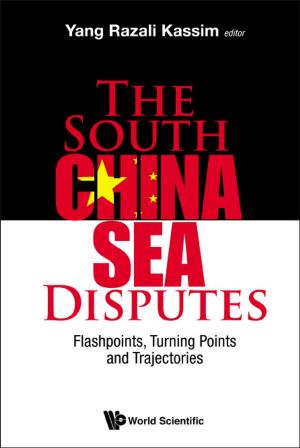SingaporeChina Relations
50 Years
Nonfiction, Social & Cultural Studies, Political Science, International, International Relations| Author: | Yongnian Zheng, Liang Fook Lye | ISBN: | 9789814713573 |
| Publisher: | World Scientific Publishing Company | Publication: | November 6, 2015 |
| Imprint: | WSPC | Language: | English |
| Author: | Yongnian Zheng, Liang Fook Lye |
| ISBN: | 9789814713573 |
| Publisher: | World Scientific Publishing Company |
| Publication: | November 6, 2015 |
| Imprint: | WSPC |
| Language: | English |
Showcasing the substantive and multi-faceted Singapore–China relationship, this book examines the political, economic, socio-cultural, people-to-people and even military exchanges between the two countries. It also highlights flagship projects and other key private sector-led projects that have become hallmarks of bilateral cooperation.
The book argues that the current level of cooperation is built on the earlier foundation laid by Lee Kuan Yew and Deng Xiaoping. In a way, the bilateral relationship is a unique one. For one, Deng Xiaoping had singled out Singapore as a model for China's reforms and China today continues to find Singapore's experience relevant. Singapore is also learning from China in the process. The two countries also have a number of bilateral institutional mechanisms that have become more important in reviewing existing cooperation and identifying new ways of working together.
Rather than simply provide an overview of bilateral relations, the book highlights the unique or distinguishing features of the Singapore–China relationship.
Contents:
- Introduction (ZHENG Yongnian and LYE Liang Fook)
- China–Singapore Relations: Looking Back and Looking Forward (John WONG and LYE Liang Fook)
- Lee Kuan Yew: Th e Special Relationship with China (ZHENG Yongnian and LIM Wen Xin)
- Resilient and Enduring Singapore–China Bilateral Economic Relations (Sarah Y TONG)
- Tourism Exchange between Singapore and China: Smooth Expansion and Bright Prospects (CHIANG Min-Hua)
- Suzhou Industrial Park: More than Just a Commercial Undertaking (LYE Liang Fook)
- Tianjin Eco-city: A Low-Carbon Model in Singapore–China Cooperation (CHEN Gang)
- Sharing Singapore's Successful Development Experience (Singbridge)
- Growing Educational Exchanges Between Singapore and China (ZHAO Litao)
- Th e Chinese Community: Huashe and Its Contributions (LIM Tai Wei)
- Singapore's Media Image in China (HUANG Yanjie and ZHAO Lingmin)
- Chinese Studies in Singapore (John WONG and LIM Tai Wei)
Readership: Academics, undergraduate and graduates students, professionals and policy makers interested in Singapore–China Relations.
Key Features:
- Highlights the unique or distinguishing features of relationship rather than simply provide an overview of bilateral relations
- Offers a timely review of the state of relations on the occasion of Singapore's 50th anniversary of independence and 25th anniversary of Singapore–China relations
Showcasing the substantive and multi-faceted Singapore–China relationship, this book examines the political, economic, socio-cultural, people-to-people and even military exchanges between the two countries. It also highlights flagship projects and other key private sector-led projects that have become hallmarks of bilateral cooperation.
The book argues that the current level of cooperation is built on the earlier foundation laid by Lee Kuan Yew and Deng Xiaoping. In a way, the bilateral relationship is a unique one. For one, Deng Xiaoping had singled out Singapore as a model for China's reforms and China today continues to find Singapore's experience relevant. Singapore is also learning from China in the process. The two countries also have a number of bilateral institutional mechanisms that have become more important in reviewing existing cooperation and identifying new ways of working together.
Rather than simply provide an overview of bilateral relations, the book highlights the unique or distinguishing features of the Singapore–China relationship.
Contents:
- Introduction (ZHENG Yongnian and LYE Liang Fook)
- China–Singapore Relations: Looking Back and Looking Forward (John WONG and LYE Liang Fook)
- Lee Kuan Yew: Th e Special Relationship with China (ZHENG Yongnian and LIM Wen Xin)
- Resilient and Enduring Singapore–China Bilateral Economic Relations (Sarah Y TONG)
- Tourism Exchange between Singapore and China: Smooth Expansion and Bright Prospects (CHIANG Min-Hua)
- Suzhou Industrial Park: More than Just a Commercial Undertaking (LYE Liang Fook)
- Tianjin Eco-city: A Low-Carbon Model in Singapore–China Cooperation (CHEN Gang)
- Sharing Singapore's Successful Development Experience (Singbridge)
- Growing Educational Exchanges Between Singapore and China (ZHAO Litao)
- Th e Chinese Community: Huashe and Its Contributions (LIM Tai Wei)
- Singapore's Media Image in China (HUANG Yanjie and ZHAO Lingmin)
- Chinese Studies in Singapore (John WONG and LIM Tai Wei)
Readership: Academics, undergraduate and graduates students, professionals and policy makers interested in Singapore–China Relations.
Key Features:
- Highlights the unique or distinguishing features of relationship rather than simply provide an overview of bilateral relations
- Offers a timely review of the state of relations on the occasion of Singapore's 50th anniversary of independence and 25th anniversary of Singapore–China relations















